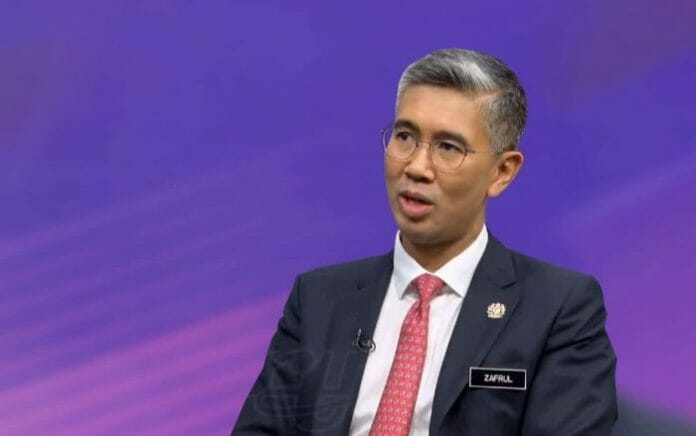Tengku Zafrul Rebuts Allegation of Unpaid 1MDB Debt
Finance Minister Tengku Zafrul refuted the allegation that the principal debt of 1MDB has not been paid until now, calling it baseless as it will only mature between 2022 and 2039.
1MDB’s total debt was about RM38.8 billion, comprising of RM32.3 billion in principal sum and RM6.5 billion in interest as at end of February 2022, according to the Finance Minister. To read the full story click here
Russian Ukraine Conflict To Add Inflationary Pressures On The Economy
The Russia-Ukraine conflict is likely to add inflationary pressures on the Malaysian economy, but the severity of the impact would depend on how long the conflicts persist, economists chimed in to say.
Sunway University Professor Dr. Yeah Kim Leng said that although the price of cooking oil is likely to increase especially considering Ukraine is one of the largest suppliers of grains and vegetable oils. To read the full story click here
“We are likely to see an increase in vegetable oil but considering that in the short-term it would not feature as significant expenditure in their household expenditure, it would not have a significant impact on their household expenditure, “he said.
Monetary and Financial Developments in January 2022, Inflation Moderates To 2.3%
Bank Negara Malaysia’s latest financial developments for January reports that the headline inflation moderated to 2.3% in January 2022 from December being 3.2%, this was due mainly to the lower contribution from fuel and electricity inflation.
It was also partly offset by higher food and non-alcoholic beverages inflation (3.6%; December: 3.2%).
The central bank added that the underlying inflation, as measured by core inflation, increased to 1.6% (December: 1.1%), driven mainly by food away from home, and repair and maintenance for personal transport. to read the full story click here
Malaysia’s Export Value Index Grew By 1.3 Per Cent In January
The export unit value index grew 1.3 per cent in January 2022 as compared with the previous month, supported by the increases in the index of animal & vegetable oils & fats (+3.3%), mineral fuels (+2.1%) and machinery & transport equipment (+1.3%), Department Of Statistics Malaysia said
On the other hand, it said that the export volume index fell 11.8 per cent in the same month, reflected by the deterioration in the index of miscellaneous manufactured articles (-15.4%), machinery & transport equipment (-11.4%), and mineral fuels (-7.8%).The seasonally adjusted export volume index grew 0.5 per cent from 154.4 points to 155.1 points. To read the full story click here
Uneven Recovery Of Loans Might Weigh Down Malaysian Banking Recovery This Year: S&P Global Ratings
S&P Global Ratings believes an uneven recovery of loans under moratorium could continue to weigh this year as a bounce-back in 2021 profits doesn’t tell the full story of the Malaysian banks.
It said that at least two drivers of last year’s profit bounce are likely to stay on track: lower credit costs (a gauge of provisions) and accelerating loan growth. However, the margin improvement last year has likely run its course for now,” it said
It said that nonperforming loans (NPLs) could rise to 2.5%-3.0% in the next 12 months after various moratorium programs expire by mid-2022, as planned. That compares with a 1.4% NPL ratio in 2021. To read the full story click here
EPF’s 6.10% Dividend Is Nothing Short Of Stellar: Economists
The Dividend rate of 6.10% announced by the Employees Provident Fund (EPF) was nothing short of stellar considering that it was able to deliver a good dividend in an environment that was extremely challenging, an economist said
Socio-Economic Research Centre (SERC) executive director Lee Heng Guie said that considering FD rates that were very low, a dividend of 6.10% was indeed extremely heartening at a time when inflationary pressures were mounting on the economy and with the value of money eroding. to read the full story click here
Russian Ukraine Conflict To Add Inflationary Pressures On The Economy
The Russia-Ukraine conflict is likely to add inflationary pressures on the Malaysian economy, but the severity of the impact would depend on how long the conflicts persist, economists chimed in to say.
Sunway University Professor Dr. Yeah Kim Leng said that although the price of cooking oil is likely to increase especially considering Ukraine is one of the largest suppliers of grains and vegetable oils.
“We are likely to see an increase in vegetable oil but considering that in the short-term it would not feature as significant expenditure in their household expenditure, it would not have a significant impact on their household expenditure, “he said. To read the full story click here









